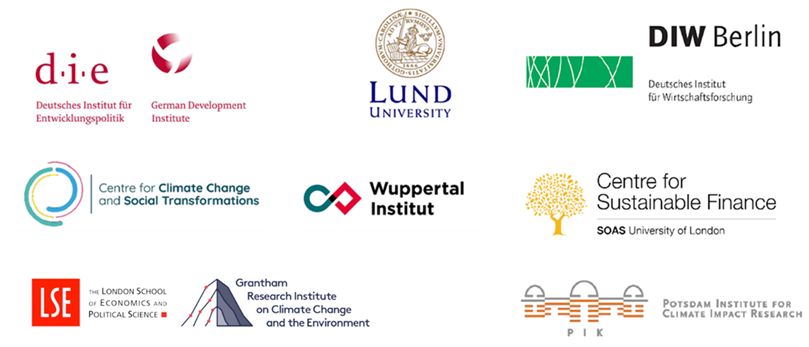

Event Type
Virtual Discussion
Location/Date
Online, 06.05.2022
Organiser
German Development Institute / Deutsches Institut für Entwicklungspolitik (DIE), Centre for Climate Change and Social Transformations (CAST)
Even with better incentives and faster green tech innovation, deep decarbonisation is almost impossible to achieve as long as carbon-intensive lifestyles prevail; and even more so, when rising purchasing power increases and consuming middle classes expand at the scale witnessed in the past two to three decades. Since efficiency improvements are often associated with cost savings for consumers, these tend to spend the freed-up income to consume more of the same or other products and services that may generate carbon emissions (rebound effects; Jackson 2016). The fourth big lever is therefore change of lifestyles, ideally unleashing a virtuous circle in which decarbonisation of production and consumption reinforce each other (Creutzig et al. 2018). On the positive side, we can observe a lot of citizen engagement for low carbon lifestyles, from cycling to work to buying organic and local, sharing services, recycling, or paying voluntary compensation for flight emissions. These social innovations play an important role, as they show to what extent personal carbon footprints can be reduced, thereby setting examples for sustainable lifestyles and business models. They are, however, in most cases limited to small pockets of green consumers, mainly in wealthy and well-educated societal groups in high-income countries, and they are mostly limited to a small range of low carbon behaviours (Newell et al. 2021). So far, hardly any of these voluntary and bottom-up initiatives has gotten anywhere near the level of decarbonisation required in the respective sector (Capstick et al. 2015). Public policies are thus needed to support their outreach and help to scale them up – including a political push to regulate products (e.g. eco-design, packaging) and infrastructure (e.g. for sustainable mobility initiatives to become convenient for all).
Agenda
Where have we seen successful lifestyles changes towards decarbonisation, especially in areas with the highest potential for consumer carbon footprint reduction (transport, energy use, meat) and what can we learn about their genesis and spread in societies?
- Ulf Jaeckel, Federal Environment and Consumer Protection Ministry (BMUV)
How can low-carbon behavioural change be scaled up and what are the wider benefits of adopting low-carbon lifestyles?
- Felix Creutzig, Technical University, Berlin
Whose lifestyles need to change? How does inequality and fairness relate to social transformation to address climate change?
- Peter Newell, University of Sussex
What are the prospects for lifestyles changes in countries with rapidly emerging consuming middle classes?
- Manisha Anantharaman, Saint Mary’s College of California
How can public policy support and upscale bottom-up decarbonisation initiatives? Insights from a review of living labs and citizen science
- Carolin Baedeker, Wuppertal Institute
How can we engage the public in a roadmap towards deep decarbonisation?
- Lorraine Whitmarsh, Centre for Social and Climate Transformations (CAST)
Moderator
- Babette Never, German Development Institute / Deutsches Institut für Entwicklungspolitik (DIE)
Please note
During our events photos and/or videos may be taken which may be published in various media for the purposes of documentation and PR activities. You have the right at any time to point out to the photographer or videographer that you do not want to be photographed or filmed.
Bonn Alliance for Sustainability Research
German Institute of Development and Sustainability (IDOS)
Tulpenfeld 6
53113 Bonn